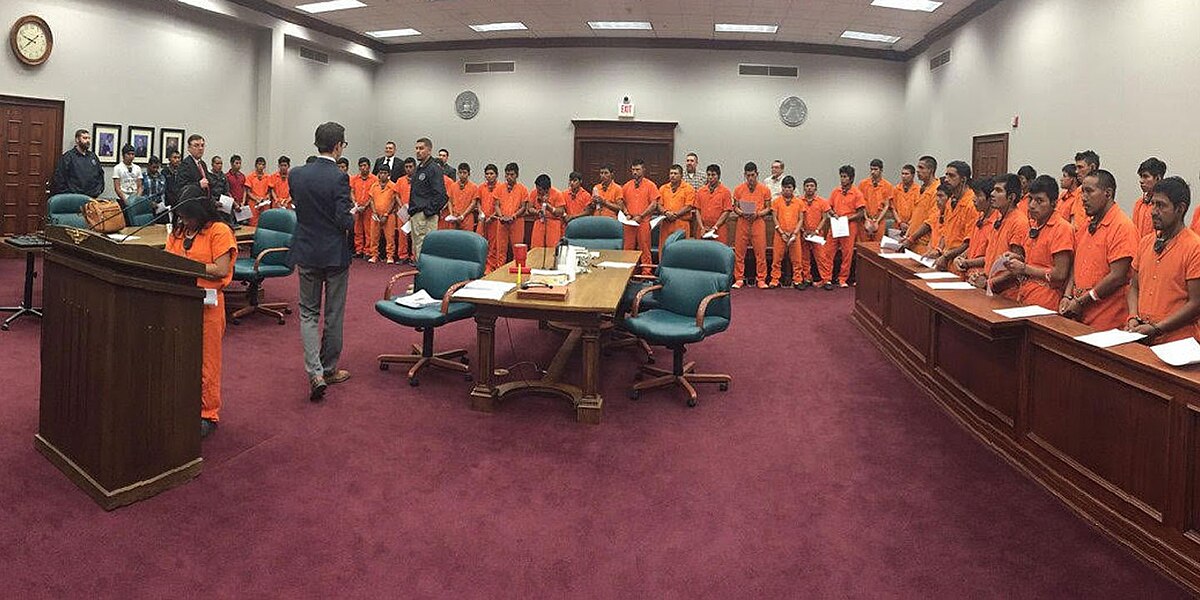- 14 3402-5578
- Rua Hygino Muzy Filho, 737, MARÍLIA - SP
- contato@latinoobservatory.org
 Photo: Federal Courthouse, Pecos, Tex.
Photo: Federal Courthouse, Pecos, Tex.
Mexico's government has signaled greater flexibility regarding the reception of non-Mexican migrants deported by the United States, reopening the possibility of accepting these people, a stance adopted in the face of something that had been previously questioned.
Initially, Mexican President Claudia Sheinbaum had indicated that she would pressure then-President-elect Donald Trump to directly repatriate migrants to their respective countries of origin. However, during a press conference, Sheinbaum said that in cases where the United States does not carry out this process, Mexico would be willing to collaborate through mechanisms that have not yet been detailed, according to a report by the Associated Press. There is the possibility that this collaboration will be selective, covering certain nationalities, or conditional on compensation offered by the U.S. government so that Mexico can send the deportees to their countries of origin.
Despite Sheinbaum's willingness to cooperate, she made clear that Mexico does not endorse such deportations. She also assured that, if they occur, the country is prepared with a plan to receive the deportees in an adequate way.
Trump's pledge to resume large-scale deportations has sparked criticism and concerns about the logistical challenges involved, given the already high number of deportations. If carried out, these deportations will have a direct impact on border cities in northern Mexico, where there is a large presence of criminal organizations and where non-Mexican migrants are particularly vulnerable to kidnapping and extortion. The problem was already experienced in Trump's first term, when thousands of asylum seekers were forced to remain in Mexico while waiting for their applications to be processed in the US. In addition, during the COVID-19 pandemic, many migrants who entered the United States were returned to Mexican territory under public health justifications.
In December, Sheinbaum had stated that she intended to ask the Trump administration to directly deport migrants to their countries of origin, instead of sending them to Mexico. Although no country, including Mexico, has the obligation to accept migrants of other nationalities, Mexico has agreed to collaborate in this regard before, especially with countries such as Cuba and Venezuela, which frequently refuse deportation flights from the United States, but show greater receptivity when flights depart from Mexican territory. This disposition by Mexico, however, suffered a temporary interruption in December 2023 due to a lack of financial resources, and deportations carried out by the country decreased considerably throughout 2024, compared to previous years.
In addition to expressing this new stance towards
deportees, Mexico has shown interest in leading a regional initiative by
proposing a meeting between foreign ministers from different countries in the
region, with the aim of debating the issue of immigration later this month,
according to the publication. This meeting can be an attempt to articulate a
joint and coordinated response to deal with the migration issue, which has
become one of the biggest challenges faced by several Latin American countries.
Thus, Mexico seeks, at the same time, to preserve its internal stability and
play a more prominent diplomatic role in the region.











